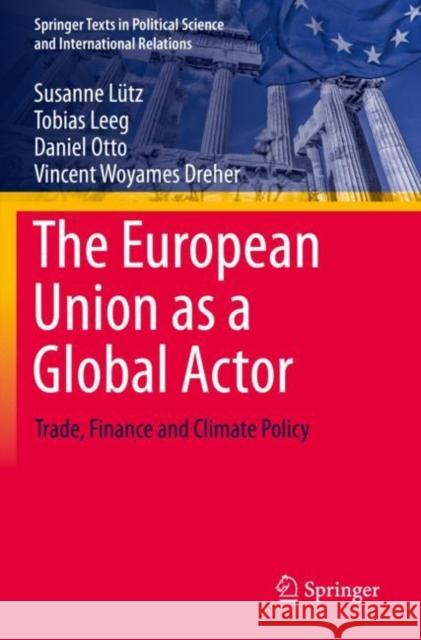The European Union as a Global Actor: Trade, Finance and Climate Policy » książka
topmenu
The European Union as a Global Actor: Trade, Finance and Climate Policy
ISBN-13: 9783030766757 / Angielski / Miękka / 2022
This book focuses on the European Union as an important actor in international relations and international political economy. The EU negotiates international economic agreements, represents Europe in international organizations, and is a major trading bloc and currency area. To what extent and under what conditions the EU can use its considerable economic power to assert its interests in the international arena is a relevant question for students, researchers and practitioners alike. To explore this question, the textbook introduces the concept of “actorness” and presents an overview of the actorness debate and theories used to explain actorness. In addition, it includes three empirical chapters on trade, finance and climate policy that apply various concepts and theories to study European actorness in the respective policy areas.











